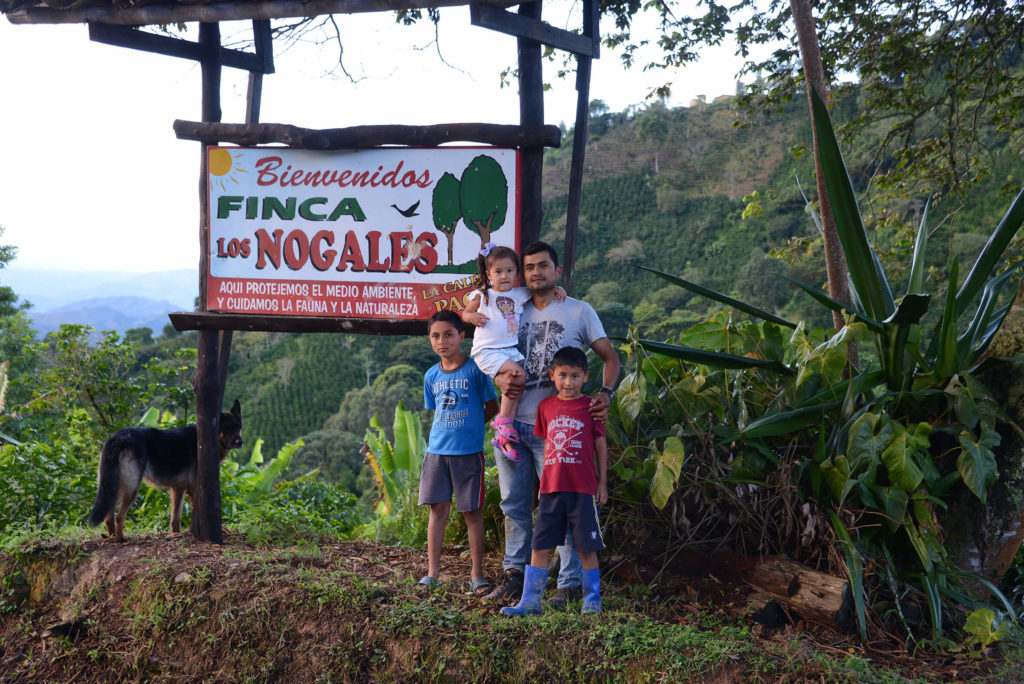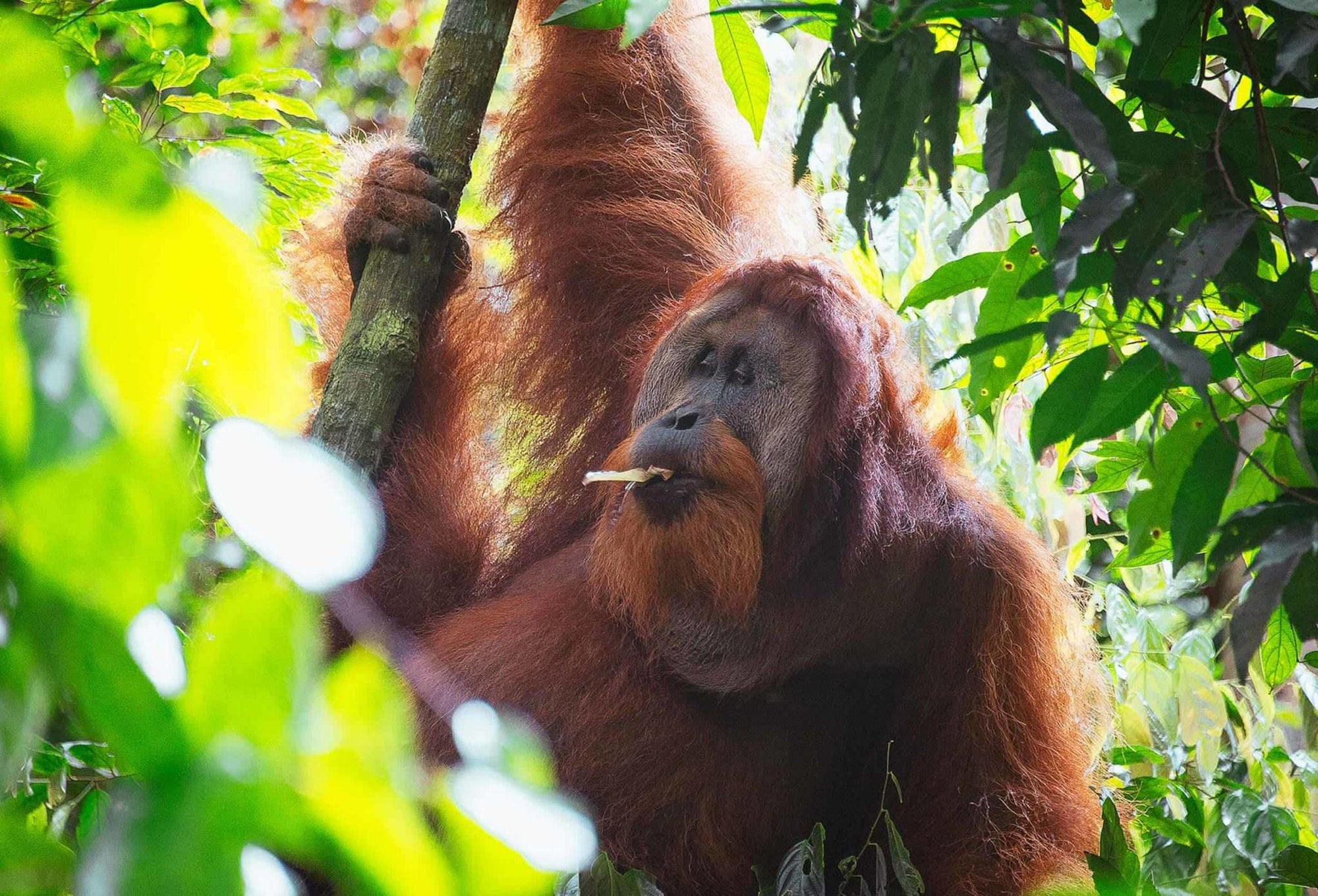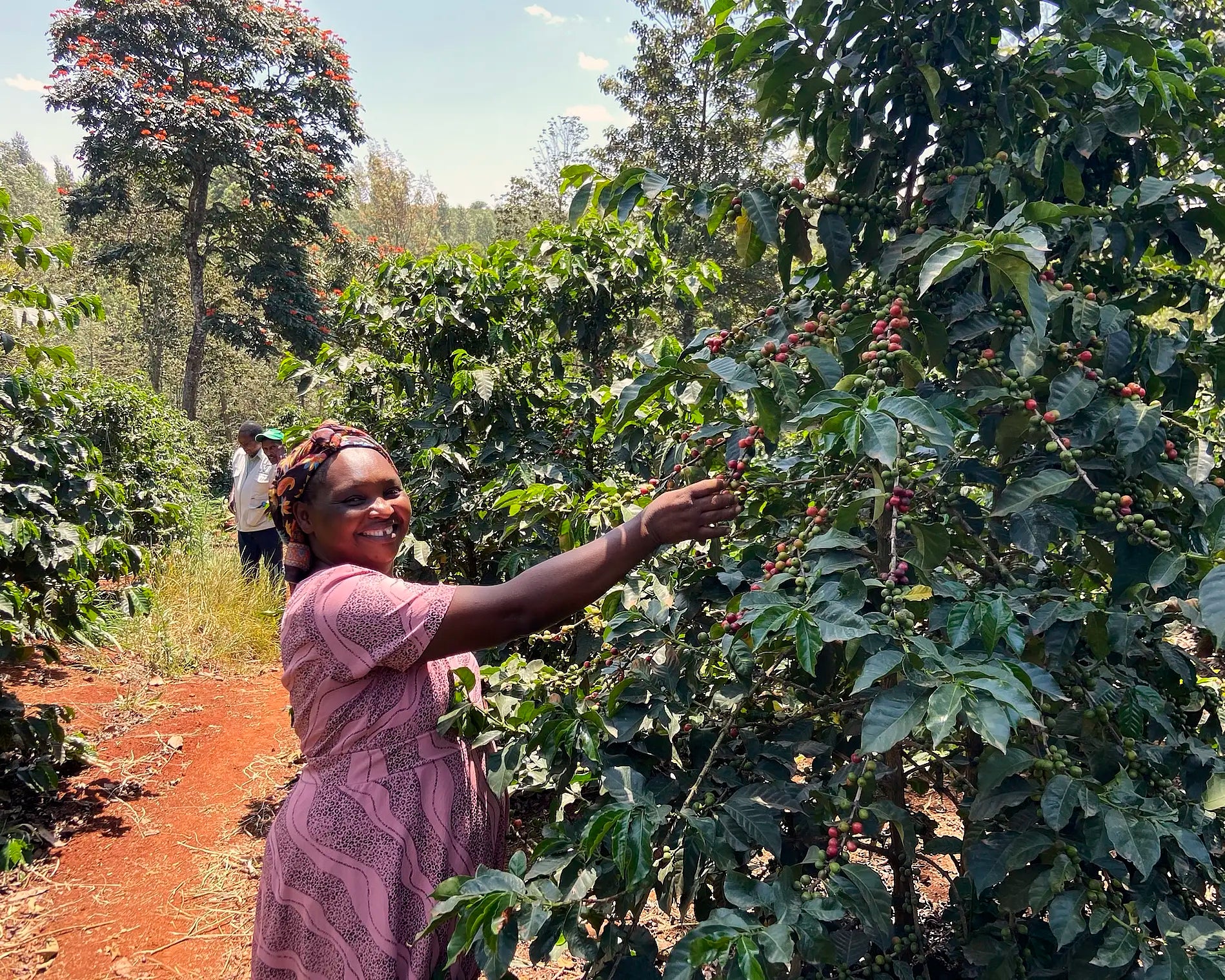Arrived in Pitalito, the visibly excited and proud Oscar, which we last visited in 2016, welcomes us. However, we are still missing two essential things for visiting the farm:
First, Ramon and Simon buy black rubber boots in the general store of Bruselas and immediately take a big step closer to life as farmers. But more important is Oscar’s latest purchase: As part of his upcoming wedding, he bought a new pick-up truck for himself and his farm – the delivery of which he has scheduled for our arrival. So, we shake many hands, are right next to Oscar when he hands over the money for his purchase and pose for a photo with Oscar in front of his new truck. He drives us to his farm, and is experience shows, even though he doesn’t have a valid driving license yet. The last minutes of the journey take us up the mountain on an extremely steep gravel road. Now we also understand why our rental cars had to stay in the village.

It’s raining softly when we reach Oscar’s farm. Built on a hilltop is a white and blue painted wooden house, which at first glance you would rather expect to see in the Alps than in the lush green highlands of Colombia. There is hardly any time to take in the breath-taking view of the valley and the countless coffee trees, because the whole family is expecting our visit: the mother, two sisters, nieces and nephews want to greet us.

We had told Oscar in advance that we would bring our tents, but he didn’t seem to be able to imagine it completely. The family cleared all the bedrooms of the house for us. It’s clear, Oscar says: “somos familia”. Despite the exuberant hospitality, we want to sleep at least one night in the traditional tents. We could hardly find any level ground and due to the incessant drizzle, everything is damp in no time. Finally, we settle on the second floor of Oscar’s coffee processing plant. It is dry and the view of the coffee fields could hardly be nicer.

Oscar’s mother and sisters call for dinner. The first of many meals with ingredients that are typical of the region is waiting for us. The portions are huge. Those who eat here usually bring a big appetite because of the hard work on the field.

After some incredulous questions about our night in the tent, Oscar shows us his farm. First, however, like every morning, the coffee must be turned on the dry beds. The coffee is mixed by hand and with wooden sliders so that all the beans dry evenly over the next few days. We are happy to help, of course, but we quickly notice how much repetition these supposedly simple steps require. We smell the parchment: depending on the degree of drying, the beans have their own berrylike, earthy, fermented smell.

Accompanied by farm dog Bruno, we hike to the coffee fields. Only the fully ripened red beans can be harvested, and we are once again aware of how labour-intensive it is to harvest coffee on these steep hills. At the highest point of his farm, Oscar shows us a small field where we want to develop a project together (we will certainly share more details soon).



Oscar takes us through his processing plant and shows us the result of the hard work in his small quality laboratory. Oscar wants to constantly improve his farm, be it in the processing of coffee or in dealing with nature. We are therefore planning a composting facility together to use the acidic pulp of the coffee cherries as a fertiliser.


The more time we spend with him, the more we realise how much the whole family depends on the farm’s earnings. All considerations (for example, the absence of artificial fertilisers, pesticides) must be considered for their economic impact.
He shares his plans with us at length. We agree that our partnership should not be limited to ordering green coffee. We want to support Oscar’s projects with the goal of more sustainable coffee production, both financially and with our knowledge. We would also like to help Oscar with the first planting of the “Pink Bourbon” coffee variety.
After three days at Finca los Nogales, we almost feel like members of Oscar’s family. We are impressed by his ambition and dedication and we are once again shown how many labour-intensive steps are necessary to produce the coffee that we prepare every day in the Espresso Bars.
We leave the farm with a strong sense that we have found something special in more ways than just the quality of the coffee. It will certainly not be our last time visiting Oscar, and he is delighted about every visit from the ViCAFE family. Now he has a pick-up to transport his guests :-).




